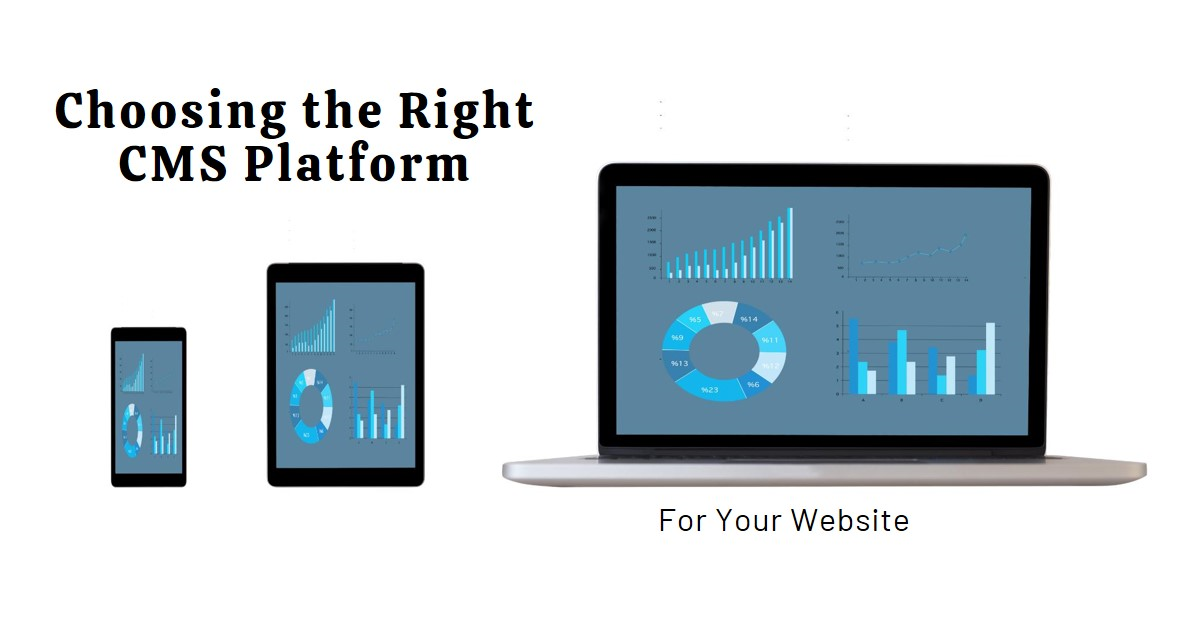The digital world is continually evolving, and organisations must adapt to these changes to stay relevant. One crucial aspect of this adaptation is selecting the right Content Management System (CMS) for your website. It is a decision that can significantly influence your online growth, engagement, and overall digital success.
When choosing a CMS, there are various factors to consider, from your team’s needs to the CMS hosting category, and from the type of CMS to available support. This comprehensive guide will help you navigate through these considerations, equipping you with the knowledge to make the best choice for your business.
Understanding the Importance of a CMS
A CMS, or Content Management System, is a software tool that allows you to create, manage, and modify content on a website without needing extensive coding knowledge. It provides a user-friendly interface, making it easier for non-technical users to add, edit, and manage the content.
In the current digital age, a robust and flexible CMS is no longer a luxury but a necessity. It provides the foundation for your website design and development, and crucially, it determines how your organisation will grow and thrive online.
The Impact of COVID-19 on CMS Selection
The advent of the coronavirus pandemic has accelerated digital transformation efforts worldwide, making business operations increasingly digital. This shift has increased the need for CMS solutions that can do more with less, reduce overheads, and remain competitive in terms of user experience for both site administrators and end-users.
Key Factors in Choosing the Right CMS Platform

When choosing a CMS platform, several key factors need to be considered:
Needs of Your Team
The CMS you opt for will significantly influence your team, from the user experience for marketers and the content team, to the technical aspects that developers must deal with.
It’s crucial for management to compile a list of wants and business needs from every department, and then develop a matrix that will establish priority for each. Organising the process in this manner allows decision-makers to assess and compare all alternatives and choose the most effective option.
CMS Hosting Category
CMS can be hosted in three different ways: self-hosted, cloud-hosted, and Software as a Service (SaaS). Each hosting category offers different levels of control, performance, security, and customisability, and the choice between them depends largely on your organisation’s specific needs and capabilities.
Traditional CMS vs Headless CMS
The choice between a traditional CMS and a headless CMS depends on your website’s complexity. If your site requires an extremely snappy, highly visual, or complex user interface, then a headless CMS may be your best option.
Which CMS to Choose?
Once you have established your team’s needs and considered the hosting category and the type of CMS, you can begin to compare these against the available options to choose the most appropriate CMS.
Available Support
The availability and quality of support from the CMS provider can be a crucial factor, particularly for organisations that lack in-house technical expertise.
Delving Deeper into the Needs of Your Team
When choosing a new CMS, a thorough consideration for the needs of all involved is crucial. Let’s delve deeper into the factors stakeholders may want to weigh in on:
Customisation
Does the CMS allow easy customisation by the marketing team for one-off landing pages and pages sitewide? How much control will the company have over the website’s “look and feel”?
Digital Experience Platform
Does the CMS work as a true digital experience platform, allowing you to personalise based on user data and actions, and also integrate easily with third-party systems to further enhance the customer experience?
Ease of Use
How is the back-end/admin user experience for content editors and site admins? Is the platform intuitive and easy to use and maintain?
Template Themes
Are there plenty of starter themes and visual alternatives available to choose from?
Site Complexity
How complex does the website need to be? Is it essentially a blogging or publishing platform?
Technical Architecture
Does the CMS follow best practices in terms of DevOps and back-end management?
3rd Party Integration and APIs
Does the site need to integrate with third-party applications, such as marketing automation and CRMs?
UI Speed, Complexity, and Content Distribution
If you need an extremely snappy, highly visual, or complex user interface, then a headless CMS may be your best bet.
SEO
How SEO-friendly is the CMS?
eCommerce
Do you plan to implement eCommerce features on the site? If so, how complex?
Scalability
If you expect major traffic or huge traffic spikes, the CMS should be highly performant and scalable.
Open Source
Is the CMS open source and backed by a large and healthy community who are consistently improving functionality, creating features, and keeping the project secure?
Licensing Fees & Other Costs
Vendor lock-in is real, and a common problem with proprietary CMS software versus open-source CMS software. Not only can the licensing fees get expensive and repetitive, but it can be challenging to move away from a proprietary vendor.
Special Cases
Does your CMS need to function as an intranet, support a very specific authoring workflow, or serve a very specific vertical such as small business?
Using a Decision Matrix for CMS Selection
A decision matrix can be a powerful tool for CMS selection. It allows stakeholders to rank their needs and establish quantitative priorities that can be used to choose the best CMS for all involved.
Understanding CMS Hosting Categories
Understanding the CMS hosting categories is crucial for making an informed decision. Here is a detailed look at each category:
Self-Hosted
In a self-hosted setup, the CMS is installed on web servers you own or control. This gives you the most control, from performance and security to the customisability of the website and related digital marketing ecosystem.
Cloud Hosting CMS
Many cloud hosting platforms will allow you to automate or take control of common maintenance tasks such as security updates, backups, and performance monitoring.
Software-as-a-Service (SaaS) CMS
By choosing a CMS that runs on a SaaS or cloud platform, your team can lose a lot of decision power and control over many aspects of the entire content management process and infrastructure.
Traditional CMS vs Headless CMS
Choosing between a traditional CMS and a headless CMS is another significant decision that can impact your website’s success.
Traditional CMS
In a traditional CMS, the front-end (the website that users see) and the back-end (where content is created and managed) are linked.
Headless CMS
In a headless CMS, the front-end and back-end are decoupled, allowing developers to build the front-end separately using modern development frameworks, while content editors can manage the content on the back-end.
Comparing Top CMS Platforms on the Market
Once the company has established a list of priorities in terms of what it actually needs, the decision-makers can proceed to compare them against available options in order to choose the most appropriate one. Here are some of the most popular CMS platforms on the market:
Umbraco
Umbraco is a user-friendly platform that forms a unified workflow, optimised to remove the common CMS roadblocks that prohibit customisation and creativity.
WordPress
WordPress is an ideal choice for personal web pages, blogs, and small business pages with editorial content.
Drupal
Drupal is an advanced alternative to WordPress, optimal for developers and highly-customised websites that house extensive data.
Magento
Magento is a feature-rich and flexible open-source CMS focused on e-commerce businesses.
Shopify
Shopify is a popular e-commerce platform that makes it easy for businesses to set up an online store and sell their products.
HubSpot
HubSpot is a comprehensive marketing, sales, and service platform that includes a CMS for building and managing websites.
WooCommerce
WooCommerce is a flexible, open-source e-commerce plugin for WordPress designed for small to large-sized online merchants.
Joomla
Joomla is a free and open-source CMS for publishing web content, known for its robust features and extensibility.
Wix
Wix is a cloud-based web development platform that allows users to create HTML5 websites and mobile sites through the use of online drag and drop tools.
BigCommerce
BigCommerce is a SaaS e-commerce platform that provides businesses with all the tools they need to set up and run an online store.
Choosing the right CMS platform for your website is a significant decision that can impact your business’s online presence and growth. Therefore, considering all the factors discussed in this guide and aligning them with your business needs is crucial. By making an informed choice, you can ensure a powerful and effective online presence that drives growth and success for your organisation.


